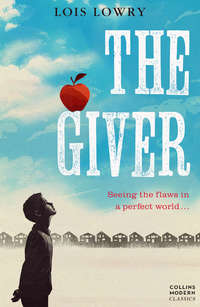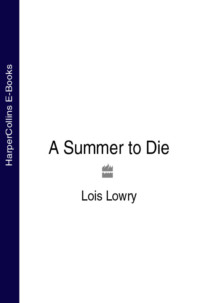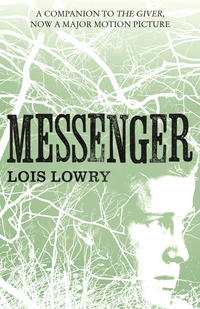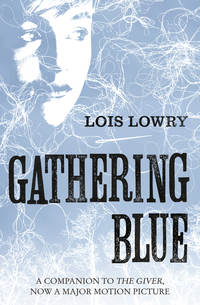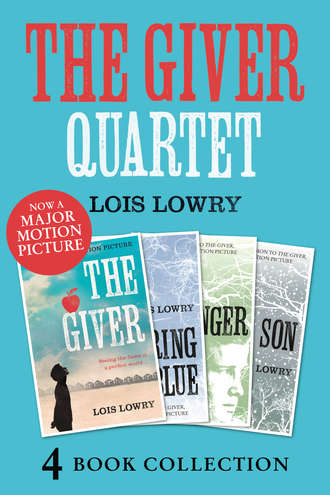
Полная версия
The Giver, Gathering Blue, Messenger, Son
Warfare? It was a concept Jonas did not know. But hunger was familiar to him now. Unconsciously he rubbed his own abdomen, recalling the pain of its unfulfilled needs. “So you described that to them?”
“They don’t want to hear about pain. They just seek the advice. I simply advised them against increasing the population.”
“But you said that that was before my birth. They hardly ever come to you for advice. Only when they – what was it you said? When they have a problem they’ve never faced before. When did it happen last?”
“Do you remember the day when the plane flew over the community?”
“Yes. I was scared.”
“So were they. They prepared to shoot it down. But they sought my advice. I told them to wait.”
“But how did you know? How did you know the pilot was lost?”
“I didn’t. I used my wisdom, from the memories. I knew that there had been times in the past – terrible times – when people had destroyed others in haste, in fear, and had brought about their own destruction.”
Jonas realised something. “That means,” he said slowly, “that you have memories of destruction. And you have to give them to me, too, because I have to get the wisdom.”
The Giver nodded.
“But it will hurt,” Jonas said. It wasn’t a question.
“It will hurt terribly,” the Giver agreed.
“But why can’t everyone have the memories? I think it would seem a little easier if the memories were shared. You and I wouldn’t have to bear so much by ourselves, if everybody took a part.”
The Giver sighed. “You’re right,” he said. “But then everyone would be burdened and pained. They don’t want that. And that’s the real reason the Receiver is so vital to them, and so honoured. They selected me – and you – to lift that burden from themselves.”
“When did they decide that?” Jonas asked angrily. “It wasn’t fair. Let’s change it!”
“How do you suggest we do that? I’ve never been able to think of a way, and I’m supposed to be the one with all the wisdom.”
“But there are two of us now,” Jonas said eagerly. “Together we can think of something!”
The Giver watched him with a wry smile.
“Why can’t we just apply for a change of rules?” Jonas suggested.
The Giver laughed; then Jonas, too, chuckled reluctantly.
“The decision was made long before my time or yours,” the Giver said, “and before the previous Receiver, and …” He waited.
“Back and back and back.” Jonas repeated the familiar phrase. Sometimes it had seemed humorous to him. Sometimes it had seemed meaningful and important.
Now it was ominous. It meant, he knew, that nothing could be changed.
The newchild, Gabriel, was growing, and successfully passed the tests of maturity that the Nurturers gave each month; he could sit alone, now, could reach for and grasp small play objects, and he had six teeth. During the daytime hours, Father reported, he was cheerful and seemed of normal intelligence. But he remained fretful at night, whimpering often, needing frequent attention.
“After all this extra time I’ve put in with him,” Father said one evening after Gabriel had been bathed and was lying, for the moment, hugging his hippo placidly in the small crib that had replaced the basket, “I hope they’re not going to decide to release him.”
“Maybe it would be for the best,” Mother suggested. “I know you don’t mind getting up with him at night. But the lack of sleep is awfully hard for me.”
“If they release Gabriel, can we get another newchild as a visitor?” asked Lily. She was kneeling beside the crib, making funny faces at the little one, who was smiling back at her.
Jonas’s mother rolled her eyes in dismay.
“No,” Father said, smiling. He ruffled Lily’s hair. “It’s very rare, anyway, that a newchild’s status is as uncertain as Gabriel’s. It probably won’t happen again, for a long time.
“Anyway,” he sighed, “they won’t make the decision for a while. Right now we’re all preparing for a release we’ll probably have to make very soon. There’s a Birthmother who’s expecting twin males next month.”
“Oh, dear,” Mother said, shaking her head. “If they’re identical, I hope you’re not the one assigned—”
“I am. I’m next on the list. I’ll have to select the one to be nurtured, and the one to be released. It’s usually not hard, though. Usually it’s just a matter of birthweight. We release the smaller of the two.”
Jonas, listening, thought suddenly about the bridge and how, standing there, he had wondered what lay Elsewhere. Was there someone there, waiting, who would receive the tiny released twin? Would it grow up Elsewhere, not knowing, ever, that in this community lived a being who looked exactly the same?
For a moment he felt a tiny, fluttering hope that he knew was quite foolish. He hoped that it would be Larissa, waiting. Larissa, the old woman he had bathed. He remembered her sparkling eyes, her soft voice, her low chuckle. Fiona had told him recently that Larissa had been released at a wonderful ceremony.
But he knew that the Old were not given children to raise. Larissa’s life Elsewhere would be quiet and serene as befitted the Old; she would not welcome the responsibility of nurturing a newchild who needed feeding and care, and would likely cry at night.
“Mother? Father?” he said, the idea coming to him unexpectedly. “Why don’t we put Gabriel’s crib in my room tonight? I know how to feed and comfort him, and it would let you and Father get some sleep.”
Father looked doubtful. “You sleep so soundly, Jonas. What if his restlessness didn’t wake you?”
It was Lily who answered that. “If no one goes to tend Gabriel,” she pointed out, “he gets very loud. He’d wake all of us, if Jonas slept through it.”
Father laughed. “You’re right, Lily-billy. All right, Jonas, let’s try it, just for tonight. I’ll take the night off and we’ll let Mother get some sleep, too.”
Gabriel slept soundly for the earliest part of the night. Jonas, in his bed, lay awake for a while; from time to time he raised himself on one elbow, looking over at the crib. The newchild was on his stomach, his arms relaxed beside his head, his eyes closed, and his breathing regular and undisturbed. Finally Jonas slept too.
Then, as the middle hours of the night approached, the noise of Gabe’s restlessness woke Jonas. The newchild was turning under his cover, flailing his arms, and beginning to whimper.
Jonas rose and went to him. Gently he patted Gabriel’s back. Sometimes that was all it took to lull him back to sleep. But the newchild still squirmed fretfully under his hand.
Still patting rhythmically, Jonas began to remember the wonderful sail that the Giver had given him not long before: a bright, breezy day on a clear turquoise lake, and above him the white sail of the boat billowing as he moved along in the brisk wind.
He was not aware of giving the memory; but suddenly he realised that it was becoming dimmer, that it was sliding through his hand into the being of the newchild. Gabriel became quiet. Startled, Jonas pulled back what was left of the memory with a burst of will. He removed his hand from the little back and stood quietly beside the crib.
To himself, he called the memory of the sail forward again. It was still there, but the sky was less blue, the gentle motion of the boat slower, the water of the lake more murky and clouded. He kept it for a while, soothing his own nervousness at what had occurred, then let it go and returned to his bed.
Once more, towards dawn, the newchild woke and cried out. Again Jonas went to him. This time he quite deliberately placed his hand firmly on Gabriel’s back, and released the rest of the calming day on the lake. Again Gabriel slept.
But now Jonas lay awake, thinking. He no longer had any more than a wisp of the memory, and he felt a small lack where it had been. He could ask the Giver for another sail, he knew. A sail perhaps on an ocean, next time, for Jonas had a memory of ocean, now, and knew what it was; he knew that there were sailboats there, too, in memories yet to be acquired.
He wondered, though, if he should confess to the Giver that he had given a memory away. He was not yet qualified to be a Giver himself; nor had Gabriel been selected to be a Receiver.
That he had this power frightened him. He decided not to tell.

JONAS ENTERED THE Annexe room and realised immediately that it was a day when he would be sent away. The Giver was rigid in his chair, his face in his hands.
“I’ll come back tomorrow, sir,” he said quickly. Then he hesitated. “Unless maybe there’s something I can do to help.”
The Giver looked up at him, his face contorted with suffering. “Please,” he gasped, “take some of the pain.”
Jonas helped him to his chair at the side of the bed. Then he quickly removed his tunic and lay face down. “Put your hands on me,” he directed, aware that in such anguish the Giver might need reminding.
The hands came, and the pain came with them and through them. Jonas braced himself and entered the memory which was torturing the Giver.
He was in a confused, noisy, foul-smelling place. It was daylight, early morning, and the air was thick with smoke that hung, yellow and brown, above the ground. Around him, everywhere, far across the expanse of what seemed to be a field, lay groaning men. A wild-eyed horse, its bridle torn and dangling, trotted frantically through the mounds of men, tossing its head, whinnying in panic. It stumbled, finally, then fell, and did not rise.
Jonas heard a voice next to him. “Water,” the voice said in a parched, croaking whisper.
He turned his head towards the voice and looked into the half-closed eyes of a boy who seemed not much older than himself. Dirt streaked the boy’s face and his matted blond hair. He lay sprawled, his grey uniform glistening with wet, fresh blood.
The colours of the carnage were grotesquely bright: the crimson wetness on the rough and dusty fabric, the ripped shreds of grass, startlingly green, in the boy’s yellow hair.
The boy stared at him. “Water,” he begged again. When he spoke, a new spurt of blood drenched the coarse cloth across his chest and sleeve.
One of Jonas’s arms was immobilised with pain, and he could see through his own torn sleeve something that looked like ragged flesh and splintery bone. He tried his remaining arm and felt it move. Slowly he reached to his side, felt the metal container there, and removed its cap, stopping the small motion of his hand now and then to wait for the surging pain to ease. Finally, when the container was open, he extended his arm slowly across the blood-soaked earth, inch by inch, and held it to the lips of the boy. Water trickled into the imploring mouth and down the grimy chin.
The boy sighed. His head fell back, his lower jaw dropping as if he had been surprised by something. A dull blankness slid slowly across his eyes. He was silent.
But the noise continued all around: the cries of the wounded men, the cries begging for water and for Mother and for death. Horses lying on the ground shrieked, raised their heads, and stabbed randomly towards the sky with their hooves.
From the distance, Jonas could hear the thud of cannons. Overwhelmed by pain, he lay there in the fearsome stench for hours, listened to the men and animals die, and learned what warfare meant.
Finally, when he knew that he could bear it no longer and would welcome death himself, he opened his eyes and was once again on the bed.
The Giver looked away, as if he could not bear to see what he had done to Jonas. “Forgive me,” he said.
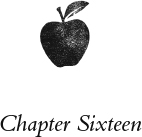
JONAS DID NOT want to go back. He didn’t want the memories, didn’t want the honour, didn’t want the wisdom, didn’t want the pain. He wanted his childhood again, his scraped knees and ball games. He sat in his dwelling alone, watching through the window, seeing children at play, citizens bicycling home from uneventful days at work, ordinary lives free of anguish because he had been selected, as others before him had, to bear their burden.
But the choice was not his. He returned each day to the Annexe room.
The Giver was gentle with him for many days following the terrible shared memory of war.
“There are so many good memories,” the Giver reminded Jonas. And it was true. By now Jonas had experienced countless bits of happiness, things he had never known of before.
He had seen a birthday party, with one child singled out and celebrated on his day, so that now he understood the joy of being an individual, special and unique and proud.
He had visited museums and seen paintings filled with all the colours he could now recognise and name.
In one ecstatic memory he had ridden a gleaming brown horse across a field that smelled of damp grass, and had dismounted beside a small stream from which both he and the horse drank cold, clear water. Now he understood about animals; and in the moment that the horse turned from the stream and nudged Jonas’s shoulder affectionately with its head, he perceived the bonds between animal and human.
He had walked through woods, and sat at night beside a campfire. Although he had through the memories learned about the pain of loss and loneliness, now he gained, too, an understanding of solitude and its joy.
“What is your favourite?” Jonas asked the Giver. “You don’t have to give it away yet,” he added quickly. “Just tell me about it, so I can look forward to it, because I’ll have to receive it when your job is done.”
The Giver smiled. “Lie down,” he said. “I’m happy to give it to you.”
Jonas felt the joy of it as soon as the memory began. Sometimes it took a while for him to get his bearings, to find his place. But this time he fitted right in and felt the happiness that pervaded the memory.
He was in a room filled with people, and it was warm, with firelight glowing on a hearth. He could see through a window that outside it was night, and snowing. There were coloured lights: red and green and yellow, twinkling from a tree which was, oddly, inside the room. On a table, lighted candles stood in a polished golden holder and cast a soft, flickering glow. He could smell things cooking, and he heard soft laughter. A golden-haired dog lay sleeping on the floor.
On the floor there were packages wrapped in brightly coloured paper and tied with gleaming ribbons. As Jonas watched, a small child began to pick up the packages and pass them around the room: to other children, to adults who were obviously parents, and to an older, quiet couple, man and woman, who sat smiling together on a couch.
While Jonas watched, the people began one by one to untie the ribbons on the packages, to unwrap the bright papers, open the boxes and reveal toys and clothing and books. There were cries of delight. They hugged one another.
The small child went and sat on the lap of the old woman, and she rocked him and rubbed her cheek against his.
Jonas opened his eyes and lay contentedly on the bed, still luxuriating in the warm and comforting memory. It had all been there, all the things he had learned to treasure.
“What did you perceive?” the Giver asked.
“Warmth,” Jonas replied, “and happiness. And – let me think. Family. That it was a celebration of some sort, a holiday. And something else – I can’t quite get the word for it.”
“It will come to you.”
“Who were the old people? Why were they there?” It had puzzled Jonas, seeing them in the room. The Old of the community did not ever leave their special place, the House of the Old, where they were so well cared for and respected.
“They were called Grandparents.”
“Grand parents?”
“Grandparents. It meant parents-of-the-parents, long ago.”
“Back and back and back?” Jonas began to laugh. “So actually, there could be parents-of-the-parents-of-the-parents-of-the-parents?”
The Giver laughed, too. “That’s right. It’s a little like looking at yourself looking in a mirror looking at yourself looking in a mirror.”
Jonas frowned. “But my parents must have had parents! I never thought about it before. Who are my parents-of-the-parents? Where are they?”
“You could go and look in the Hall of Open Records. You’d find the names. But think, son. If you apply for children, then who will be their parents-of-the-parents? Who will be their grandparents?”
“My mother and father, of course.”
“And where will they be?”
Jonas thought. “Oh,” he said slowly. “When I finish my training and become a full adult, I’ll be given my own dwelling. And then when Lily does, a few years later, she’ll get her own dwelling, and maybe a spouse, and children if she applies for them, and then Mother and Father—”
“That’s right.”
“As long as they’re still working and contributing to the community, they’ll go and live with the other Childless Adults. And they won’t be part of my life any more.
“And after that, when the time comes, they’ll go to the House of the Old,” Jonas went on. He was thinking aloud. “And they’ll be well cared for, and respected, and when they’re released, there will be a celebration.”
“Which you won’t attend,” the Giver pointed out.
“No, of course not, because I won’t even know about it. By then I’ll be so busy with my own life. And Lily will, too. So our children, if we have them, won’t know who their parent-of-parents are, either.
“It seems to work pretty well that way, doesn’t it? The way we do it in our community?” Jonas asked. “I just didn’t realise there was any other way, until I received that memory.”
“It works,” the Giver agreed.
Jonas hesitated. “I certainly liked the memory, though. I can see why it’s your favourite. I couldn’t quite get the word for the whole feeling of it, the feeling that was so strong in the room.”
“Love,” the Giver told him.
Jonas repeated it. “Love.” It was a word and concept new to him.
They were both silent for a minute. Then Jonas said, “Giver?”
“Yes?”
“I feel very foolish saying this. Very, very foolish.”
“No need. Nothing is foolish here. Trust the memories and how they make you feel.”
“Well,” Jonas said, looking at the floor, “I know you don’t have the memory any more, because you gave it to me, so maybe you won’t understand this—”
“I will. I am left with a vague wisp of that one; and I have many other memories of families, and holidays, and happiness. Of love.”
Jonas blurted out what he was feeling. “I was thinking that … well, I can see that it wasn’t a very practical way to live, with the Old right there in the same place, where maybe they wouldn’t be well taken care of, the way they are now, and that we have a better-arranged way of doing things. But anyway, I was thinking, I mean feeling, actually, that it was kind of nice, then. And that I wish we could be that way, and that you could be my grandparent. The family in the memory seemed a little more …” He faltered, not able to find the word he wanted.
“A little more complete,” the Giver suggested.
Jonas nodded. “I liked the feeling of love,” he confessed. He glanced nervously at the speaker on the wall, reassuring himself that no one was listening. “I wish we still had that,” he whispered. “Of course,” he added quickly, “I do understand that it wouldn’t work very well. And that it’s much better to be organised the way we are now. I can see that it was a dangerous way to live.”
“What do you mean?”
Jonas hesitated. He wasn’t certain, really, what he had meant. He could feel that there was risk involved, though he wasn’t sure how. “Well,” he said finally, grasping for an explanation, “they had fire right there in that room. There was a fire burning in the fireplace. And there were candles on a table. I can certainly see why those things were outlawed.
“Still,” he said slowly, almost to himself, “I did like the light they made. And the warmth.”
“Father? Mother?” Jonas asked tentatively after the evening meal. “I have a question I want to ask you.”
“What is it, Jonas?” his father asked.
He made himself say the words, though he felt flushed with embarrassment. He had rehearsed them in his mind all the way home from the Annexe.
“Do you love me?”
There was an awkward silence for a moment. Then Father gave a little chuckle. “Jonas. You, of all people. Precision of language, please!”
“What do you mean?” Jonas asked. Amusement was not at all what he had anticipated.
“Your father means that you used a very generalised word, so meaningless that it’s become almost obsolete,” his mother explained carefully.
Jonas stared at them. Meaningless? He had never before felt anything as meaningful as the memory.
“And of course our community can’t function smoothly if people don’t use precise language. You could ask, ‘Do you enjoy me?’ The answer is ‘Yes’,” his mother said.
“Or,” his father suggested, “‘Do you take pride in my accomplishments?’ And the answer is wholeheartedly ‘Yes’.”
“Do you understand why it’s inappropriate to use a word like ‘love’?” Mother asked.
Jonas nodded. “Yes, thank you, I do,” he replied slowly.
It was his first lie to his parents.
“Gabriel?” Jonas whispered that night to the newchild. The crib was in his room again. After Gabe had slept soundly in Jonas’s room for four nights, his parents had pronounced the experiment a success and Jonas a hero. Gabriel was growing rapidly, now crawling and giggling across the room and pulling himself up to stand. He could be upgraded in the Nurturing Centre, Father said happily, now that he slept; he could be officially named and given to his family in December, which was only two months away.
But when he was taken away, he stopped sleeping again, and cried in the night.
So he was back in Jonas’s sleepingroom. They would give it a little more time, they decided. Since Gabe seemed to like it in Jonas’s room, he would sleep there at night a little longer, until the habit of sound sleep was fully formed. The Nurturers were very optimistic about Gabriel’s future.
There was no answer to Jonas’s whisper. Gabriel was sound asleep.
“Things could change, Gabe,” Jonas went on. “Things could be different. I don’t know how, but there must be some way for things to be different. There could be colours.
“And grandparents,” he added, staring through the dimness towards the ceiling of his sleepingroom. “And everybody would have the memories.
“You know about memories,” he whispered, turning towards the crib.
Gabriel’s breathing was even and deep. Jonas liked having him there, though he felt guilty about the secret. Each night he gave memories to Gabriel: memories of boat rides and picnics in the sun; memories of soft rainfall against windowpanes; memories of dancing barefoot on a damp lawn.
“Gabe?”
The newchild stirred slightly in his sleep. Jonas looked over at him.
“There could be love,” Jonas whispered.
The next morning, for the first time, Jonas did not take his pill. Something within him, something that had grown there through the memories, told him to throw the pill away.
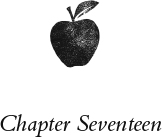
TODAY IS DECLARED an unscheduled holiday. Jonas, his parents and Lily all turned in surprise and looked at the wall speaker from which the announcement had come. It happened so rarely, and was such a treat for the entire community when it did. Adults were exempted from the day’s work, children from school and training and volunteer hours. The substitute Labourers, who would be given a different holiday, took over all the necessary tasks: nurturing, food delivery and care of the Old; and the community was free.



